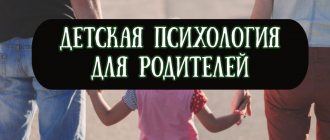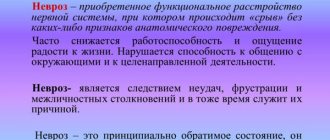Russophobia is a dismissive, biased, impartial, suspicious, unfriendly and even hostile-aggressive attitude towards Russians in particular or Russia in general. Russophobia is a separate manifestation of xenophobia, i.e. Russophobia is one of the areas of ethnophobia (negative attitude towards certain ethnic groups).
Many scientists consider Russophobia, unlike other phobias, to be a manifestation of a specific ideology, consisting of a whole set of concepts and a complex of ideas that have a certain structure, history of development, system of concepts and their own characteristic manifestations.
Appearance of the term
The word “Russophobia” was first used in 1867, in a letter from the great Russian poet and diplomat Fyodor Ivanovich Tyutchev to his daughter. Tyutchev’s remark turned out so well that it can be inserted into modern articles without correcting a single word in it:
| We are talking about the Russophobia of some Russians - and very revered ones at that... Before they told us, and they said it completely sincerely, that Russia disgusts them with the lack of rights, freedom of speech, etc., etc., and Europe inspires them with tender love precisely because of the presence there all this... What do we see now? As Russia, seeking some relief, asserts itself more and more, the disgust of these gentlemen towards it only grows. For, apparently, the previous order never aroused in them such fierce hatred as modern trends in national thought... And on the contrary, no matter how much law, morality, and civilization itself are trampled in Europe, this, as we see, does not in the least diminish their favor west. They still sympathize with the Poles and find completely natural the vile policy of the Western powers towards Eastern Christians, etc., etc. In a word, in the phenomenon I have indicated, principles, as such, are in no way involved, there is nothing here except instincts , and it is the nature of these instincts that needs to be analyzed. [3] |
Classification definition
Although many of us are well aware of the word Russophobia, it is quite difficult to classify this concept. In fact, there are two theories for dividing Russophobic ideology into types. According to the first, which belongs to Semyon Charny, Russophobia is divided into elite and grassroots:
- Elite is of a political nature and involves the commission of anti-Russian actions by any power or its regions.
- The grassroots refers to the broad masses who are opposed to Russia.
These two varieties do not always exist in parallel with each other. It happens that they unite, thus forming a goal leading to the expulsion or liquidation of a people.
But the author of the second concept, A.I. Fursov, is confident that Russophobia cannot always be an integral ideological system, but simply represent a temporary deterioration in attitudes towards the Russian people, caused by the onset of certain events.
History of Russophobia
Today, Russophobia is associated with anti-Sovietism and liberalism. However, this connection is purely situational. Historical analysis shows that Russophobia has always been part of any ideology of our aggressive geopolitical opponents. Be it Catholic proselytism and Polish great power, French Bonapartism and chauvinism, British imperialism and German fascism.
Background
The confrontation between the West and East of Europe, including propaganda, has a long history. The starting point can be considered the Great Schism between the Catholic and Orthodox Churches in 1054, as a result of which both churches anathematized each other[1]. From that moment on, active Catholic propaganda began against Orthodoxy and Byzantium.
The methods of that “information war” differed little from the current ones and included double standards, labeling, and subsequently rewriting history. The thousand-year-old Byzantine Empire, which during the “dark” Middle Ages was the guardian of European culture and promoted Christianity to the north and east, is relegated to the margins of European history in Western historiography. Catholic propagandists created the labels of “Byzantineism” and “Eastern barbarism” and all the negative phenomena in Byzantium and in the East in general were typed under these names. At the same time, similar and even worse manifestations of barbarism in the West did not receive a “generalizing” name and were considered excesses or random errors. [2][3]
European Catholic propaganda was not only religious (proselytism), but also of a completely modern military-political nature. It justified and encouraged any expansion and aggression of Catholic powers and crusaders against non-Catholic, including Christian, peoples. In 1204, the crusaders took Constantinople. This “victory,” followed by the massacre, was a severe blow to the fading Christian empire. The crusaders suffered one of their biggest defeats in 1242, also not from Muslims or pagans. On the ice of Lake Peipus they were defeated by Orthodox Christians, under the command of Alexander Nevsky, who became a Christian saint.
After the decline and death of Byzantium, the leading Orthodox power became the Muscovite kingdom, which inherited Byzantine symbols. The propaganda spearhead was redirected to Russia, which subsequently gave rise to Russophobia.
Already during the Livonian War it was said: “Russians are worse than the Turks.” [4][5] Propaganda that has not stopped since then has turned Russophobia into an ingrained part of Western culture. It is introduced into consciousness already at school by the interpretation of history that is presented to children. This interpretation was formed during the centuries-long confrontation between Russia and the West.
The emergence of systemic Russophobia in the West
Russophobia as a trend of ideology arose in the West in the 16th century, which was associated with the expansionist policy of Poland, which sought to subjugate lands in the East (that is, Russian lands). Poland was the largest Catholic country closest to Russia, and a significant part of the information about Muscovy came to Europe from the Poles, who worked hard to form in the West a negative image of “barbaric” “Asian” Russia, with which Poland repeatedly fought during the 16th-17th centuries. Then these Russophobic ideas were picked up by other Western countries, which came into conflict with Russia as its geopolitical positions strengthened in the 18th-20th centuries.[4][5]
Russian self-hatred (Self-Chauvinism)
During the 18th century, during the Peter's reforms and the era of the Russian Enlightenment, there was a large-scale integration of Russia into the European cultural and information space. By the middle of the 19th century, the Russian Empire had reached the peak of its power, and the competing empires of Western Europe could do little to respond militarily (their superiority in naval forces was not too scary for the predominantly land-based Russian Empire). As a result, Western countries were forced to resort to information warfare, sharply increasing negative information pressure. Western support for particularly prominent Russophobes and Russian dissidents like Herzen, the importation of anti-government and Russophobic literature into Russia, the general anti-Russian background of many European newspapers and books - all this played a significant role in the formation of the phenomenon of so-called “self-hatred”, which is expressed in the fact that part of educated Russians circles (the nobility and the then emerging intelligentsia) became imbued with a deeply negative attitude towards their own country and their own people, far beyond the scope of reasonable criticism. [6][7] Subsequently, Russophobic circles of the intelligentsia in the Russian Empire were strengthened by nationalists of all stripes, including followers of Ukrainianism - a political movement aimed at splitting not only the Empire, but also the Russian people themselves based on the ideas of local identity and denial of all-Russian unity, combined with Russophobic ideologies developed earlier in the West (myths about “Russian barbarism,” “Asianism,” tyranny, the non-Slavic origin of Russians, and so on).[8]
Metamorphoses of the 20th century
Liberal self-hatred played a significant role in the revolutionary events of the early 20th century, which led to the collapse of the Russian Empire. The Soviet Union, which replaced the Empire, initially professed largely Russophobic ideologies of the struggle against the “pre-revolutionary past” and “Russian great-power chauvinism,” but during the Great Patriotic War it largely moved away from these ideologies (or softened them).
During the Soviet period, old Russophobic myths in the West were supplemented with new ideologies of Soviet phobia and the fight against the “Red threat”. The Great Victory of 1945, colossal economic and technological growth, the flourishing of culture, the entry of man into space, the creation of the Soviet nuclear shield and the sharp expansion of the bloc of communist countries - all this, on the one hand, seriously undermined the position of Russophobes and anti-Sovietists in the world, but, on the other hand, on the part, caused fierce geopolitical and informational resistance from the West, which unleashed the so-called Cold War against the USSR. Subsequent mistakes of the Soviet leadership in governing the country and the improvement of information warfare technologies by the West led in the 1980s to the collapse of the bloc of socialist countries in Europe, and then to the collapse of the USSR itself. The dismantling of the Soviet system took place under anti-Soviet, anti-communist and nationalist slogans. A significant role was again played by a powerful surge of self-hatred in the country, provoked by the ill-considered actions of the perestroika reformers. In the context of the crisis caused by falling oil prices, instead of carrying out real economic reforms under the control of the existing political system, they launched a flywheel of criticism of the system itself in order to reform it. This led to the catastrophic destruction of not only the old political system, but also the unity of the country.
Liberal Russophobia
In the post-Soviet period, the West's information war against Russia continued, as the West remained dissatisfied with the degree of destruction, plunder and weakening of Russia. A new round of information war began with the coming to power of Vladimir Putin, who stopped the collapse of the country and significantly strengthened the Russian state. Since Russia is actually and officially the heir of the USSR, many old anti-Soviet myths remain directed against Russia, as well as even more ancient classical Russophobic myths. In the last two decades, Western and Russian anti-Sovietists have promoted many new or previously little-known anti-Soviet myths, including myths about the Great Patriotic War - in particular, the West and some anti-Russian post-Soviet countries are making attempts to equate Nazism with communism and force Russia to repent for its “crimes” Soviet totalitarian regime,” thus creating pretexts for Russia to pay compensation and give away disputed territories.
The collapse of the USSR led to the temporary triumph of the ideology of neoliberalism and liberal fundamentalism in the West and in Russia. Western and Russian radical liberals are largely responsible for the collapse of the USSR and especially for the extremely difficult 1990s for Russia. As during the late Russian Empire, liberals turned out to be the main proponents of the ideology of Russophobia and self-hatred. Modern Russophobic myths are liberal myths, and the main carriers of Russophobic ideas in modern Russia have become carriers of liberal ideas and non-systemic opposition. Of course, this does not mean that all Russian liberals and oppositionists are Russophobes - but the fact is that it was this environment that provided the most striking examples of modern Russophobic self-hatred. However, the increased intensity of inadequacy among non-systemic pro-Western liberals became the reason that many systemic and moderate liberals, who play a large role in governing the country, were forced to dissociate themselves from liberal radicals and from liberal rhetoric in general.
World and Russian events of the late 1990s, 2000s and early 2010s led to a large-scale increase in anti-Western sentiment in Russia and to the rejection by Russian society of the Russophobic ideas imposed on it. The attack of Georgia on South Ossetia and Russian peacekeepers with the support of the West, numerous color revolutions inspired by the West (which took place under liberal slogans and ultimately led to the most tragic results), an unsuccessful attempt at a white-ribbon revolution in Moscow, and, finally, the Ukrainian crisis - all this led to complete discrediting of pro-Western and neoliberal forces in Russia. A significant improvement in the state of the Russian economy and demography, numerous sporting victories, the reunification of Crimea with Russia - all this contributed to the growth of pride in their country and the undermining of the positions of Russophobes within Russia, and the creation of Russian international media (primarily Russia Today) significantly ruined the life of Russophobes for abroad.
[edit] Subject in the Special Olympics
Russophobes will not pass!
Get over your Russophobia! ChSKH, the reaction of people to the speeches of Rus-haters and sausage emigrants is most often of the same type and laconic. Both of them are almost immediately sent to hell, and in the first case such a weighty argument is supported by a reference to the domestic nuclear missile potential.
In this regard, in races on the subject, the only people who oppose the creots are, as a rule, Russoskeptics. What adds fuel to the fire is the fact that they are militant nonsense, in most cases taking liberal or techno-fascist positions, and therefore willingly strive to hurt their opponents.
Also, a rich source of lulz is the squabble between the people themselves - differing in their views on such milestones of Russian history as Tsarist Russia and the USSR. Either having different religious views (Christianity vs paganism) or not having them at all. Finally, cultural debaters can come from different, albeit close, countries. And in all these cases, the subject is rarely mentioned—sometimes even on both sides.
Also, they furiously deliver walls of text on Quora, where one question “what is russophobia” evokes a crowd of Western “analysts” who prove with their fingers, without proof, that there is “no Russophobia”, “Russophobia was invented by the Kremlin” or “Russophobia - a forced meme, for the distribution of which they pay.
Also, there is an opinion that when assessing Russian design/culture, a suspiciously larger number of Western laymen shout “goofy”, “disgusting”, “looks cheap”, “tasteless” etc., but cannot explain what, say, a budget-tank from TAZofabrika is doing “disgustingly cheap” in comparison with the Renoshka/subcompact car, and the “antique, but high-tech” of the new Russian is “tasteless.”
Studying the problem
On April 3, 2020, the World Russian People's Council, headed by Patriarch Kirill of Moscow and All Rus', created the Center for Social Research and the Study of Identity Issues. The center will study Russophobia, the Russian world, and the Russian idea. Alexander Shchipkov, a member of the bureau of the World Russian People's Council, said: “We are engaged in an academic study of what Russophobia, the Russian world, the Russian land, the Russian idea are. Everyone has different meanings, but you need to understand what it is? In addition, we are engaged in the practical side - monitoring violations of the rights of Russians.” [9][10]
Fighting the disease
The fight against Russophobia must begin with working with the media and filtering information that goes on air. In most cases, news is broadcast that is beneficial to the government or that sells well.
Russophobia is not a disease with a mental disorder, but a type of perception of reality in the wrong light.
At one time, people with black skin were persecuted and bullied. Many years passed until fighters for freedom and human rights achieved the abolition of the slave trade and were able to equalize the rights of white and dark-skinned people.
Russophobia cannot be cured. It is unlikely that people who have formed their vision of the world will change their position.
Russophobia can only be combated through general influence on the population through the media.
Links
- Oleg Nemensky - Russophobia as an ideology
- Andrey Fursov - Russophobia (radio broadcast “Persona grata” with Vitaly Ushkanov from 09/04/2008)
- Andrey Fursov - Russophobia (radio broadcast “Myths about Russia” by Vladimir Medinsky dated October 21, 2008)
- Test for Russophobia. Or ten phrases that cause hatred.
- Igor Shafarevich. "Russophobia" and "Russophobia: 10 years later"
- Russophobia - Wikireality article
- Russia released a 120-page report on Russophobia in the United States - about Russiagate
| [ + ] Another camp | |
| Ideology | Myths about Russia • Fake Russophobic quotes • Russophobia • Famous Russophobes • Ideology of sodomy • Radical feminism • Creative class • Teenage opposition • Quotes about liberals • Liberal quotation book • Liberal demagoguery |
| Methods | Infowar against Russia • Color revolutions • Revolutions and coups • Separatism • Dehumanization • Bring in Raska |
| Fails | Opposition files • Yves Rocher case • Bolotnaya case • Udaltsov case • Alexei Navalny • Evidence of the work of non-systemic opposition in Western countries |
| see also | Political dictionary • Creative phrase book • Memo to the oppositionist • Handshake meter • Wikipedia |
[edit] Quotes
If a person does not like to at least occasionally look at old photographs of his parents, does not appreciate the memory of them left in the garden that they cultivated, in the things that belonged to them, then he does not love them. If a person does not like old houses, old streets, even poor ones, then he has no love for his city. If a person is indifferent to the historical monuments of his country, then he is indifferent to his country.
D.S. Likhachev
Nothing sells as well in Russia as Russophobia (which in itself is not new). But it is important to remember that there is only one entity interested in the production and distribution of this type of content, and that is the state.
Ekaterina Shulman
An anti-Soviet is always a Russophobe, and any Russophobe is an enemy of my country.
Goblin (Dmitry Puchkov)[2]
Nowadays, Ukrainians are not required to have a good knowledge of the language (except for a few ritual phrases and slogans), or a surname ending in “-enko”, or other “stupid things”. It all came down to demonstrative hatred of the Muscovites, even the reason for which is no longer so important.
Konstantin Krylov[3]
Until recently, the Ukrainian Wikipedia did not have such a section as “Russophobia”. About the reason that Ukrainian Wikipedia is itself a complete Russophobia
Vasily Solodkov, video blogger
Final part
Russophobia is considered a component of ethnophobia, as a prejudiced attitude towards one nation. To avoid the spread of such an ideological concept, people must independently study the history of their roots.
The conclusion suggests itself that the spread of Russophobia is beneficial to the politicians of the world. Russia is a large state with good weapons, so many are afraid, realizing that they cannot cope with it alone. People forget about the great discoveries made by Russian scientists, athletes, writers, artists, and philanthropists. Russophobic conversations and manifestations are supported artificially.
What is this
It is not difficult to guess that this term is associated with Russia and the Russian population. In addition, this concept is not just an interpretation of a specific fear, but can now be considered a phenomenon that contains a whole collection of ideas and concepts.
Russophobia is a feeling towards Russia or Russians, expressed by hostility, hostility, prejudice and suspicion. Many experts believe that this term is a special direction in ethnophobia. Others are absolutely sure that, looking at other national phobias, Russophobia has nevertheless become a kind of ideology that contains a historical context, has its own structure, terminology, genesis, development, and even a special manifestation.
True Russophobes
It is perhaps not surprising that Germany and Austria are the most ardent fans of Russophobia. Initially, everything was connected with Slavophobia, which was propagated by Austria. Well, later, especially during the Great Patriotic War, Germany is the source of this ideology.
The policy of Russophobia was very widespread here. The Third Reich considered it its duty to annex the lands of Eastern Europe, and not only deport or assimilate the local population, but also destroy it.
The Nazis were convinced that Russians were the least Germanizable people, so by 1942 a plan was developed that would lead the world to the complete destruction of the Russian population. The Germans had to evict almost the entire Russian people from the occupied territory to Western Siberia. Some were nevertheless subjected to Germanization. In addition, it is believed that the very concept of “resettlement” was a substitute for another – “destruction”.











